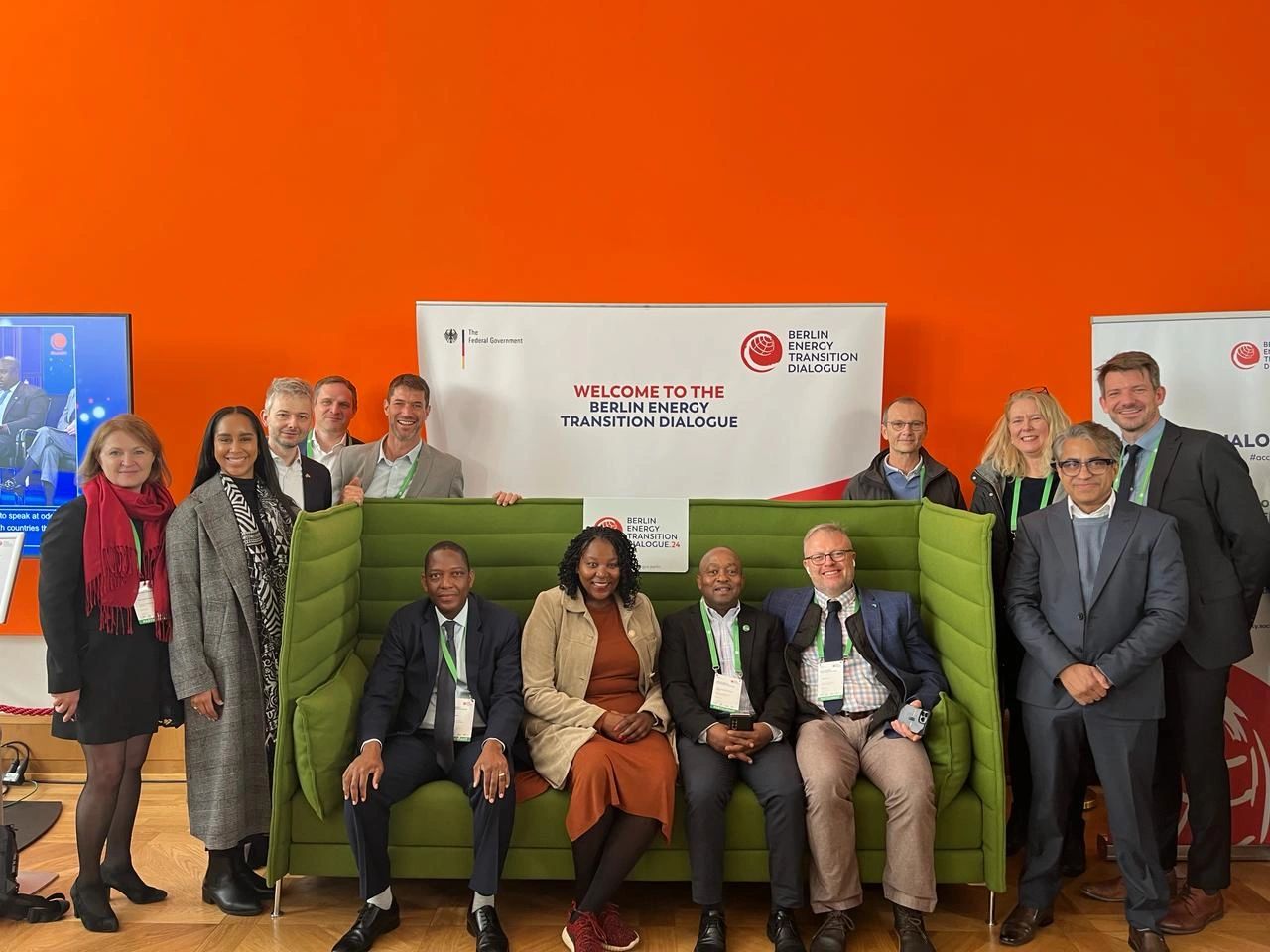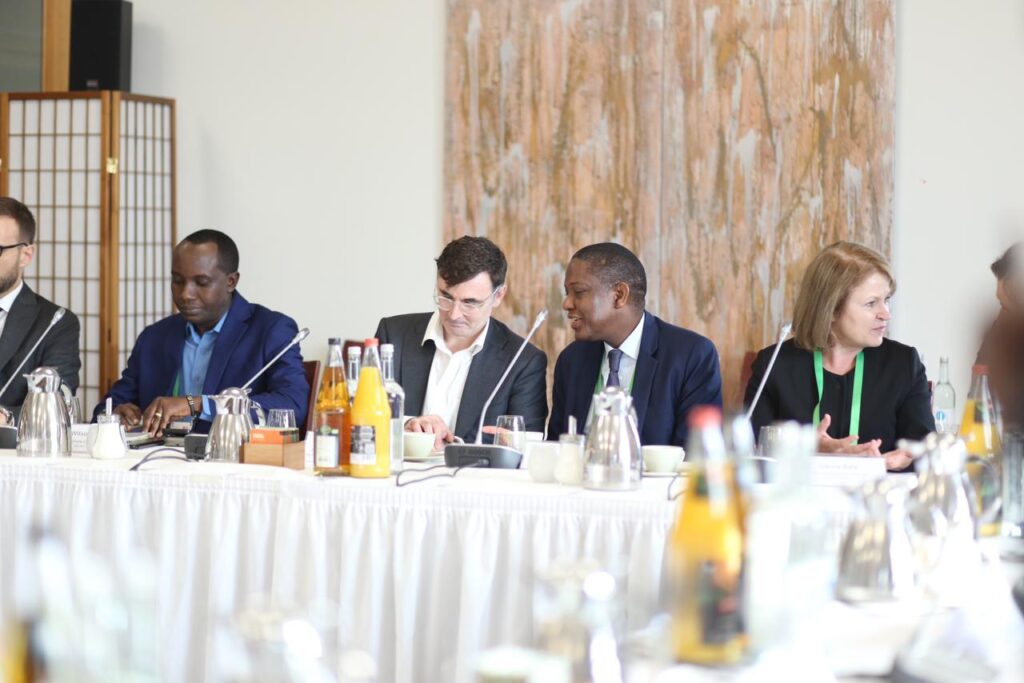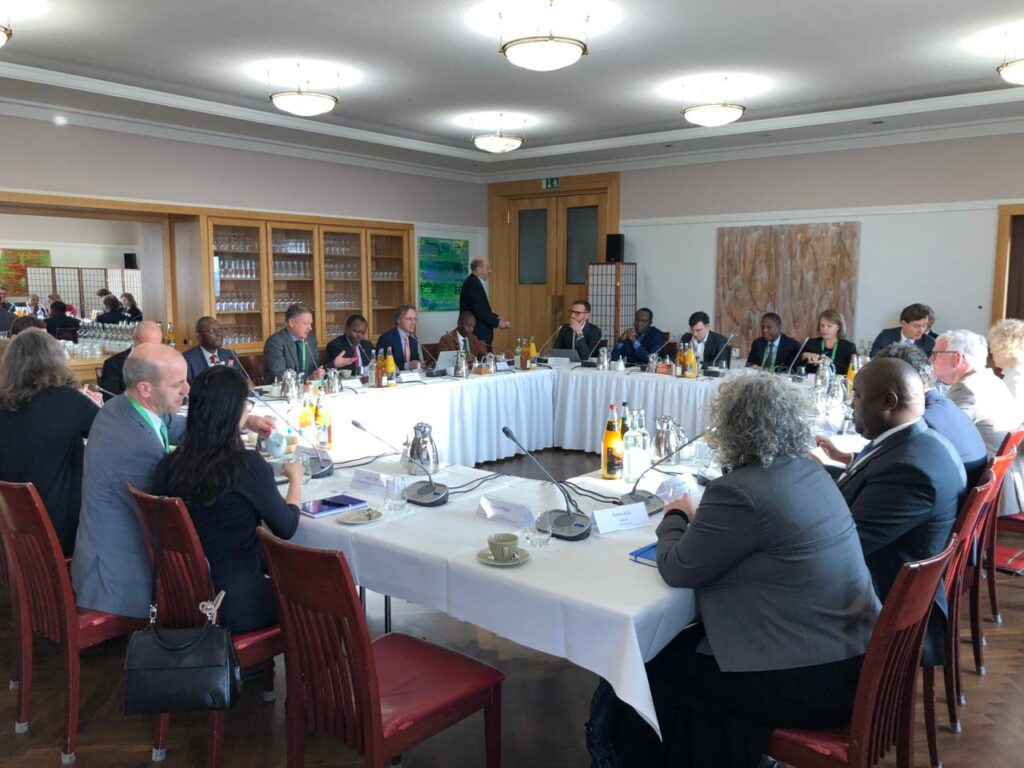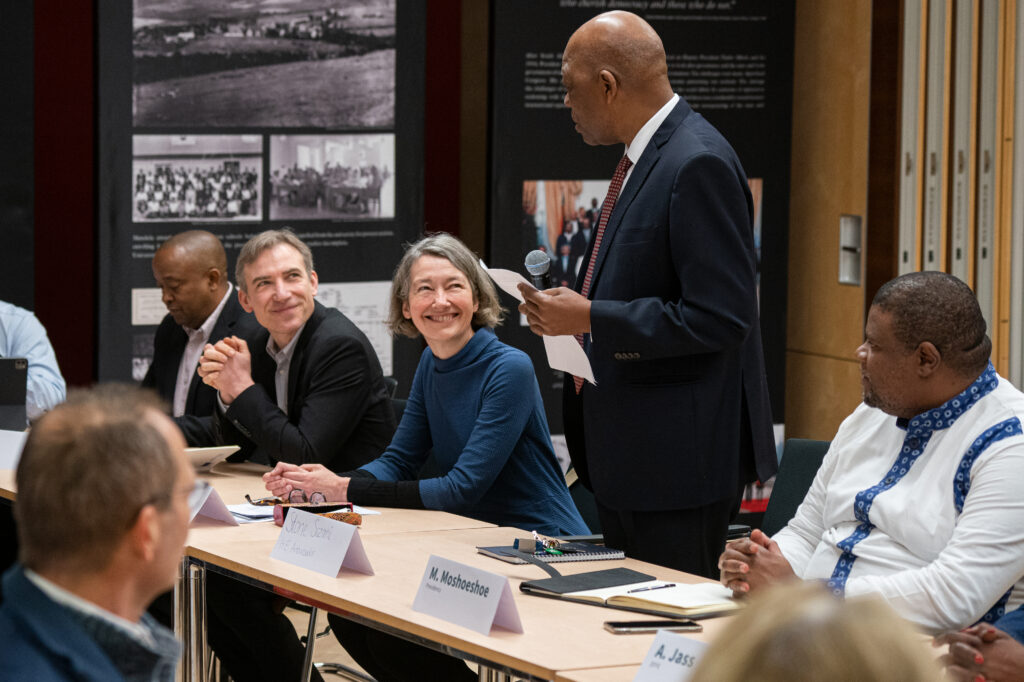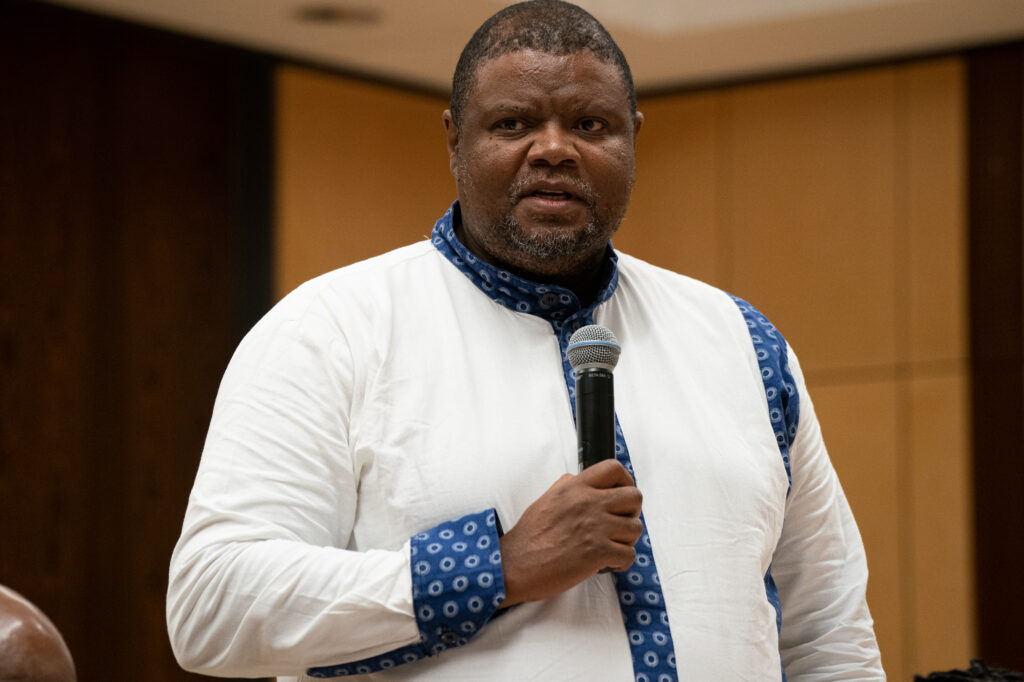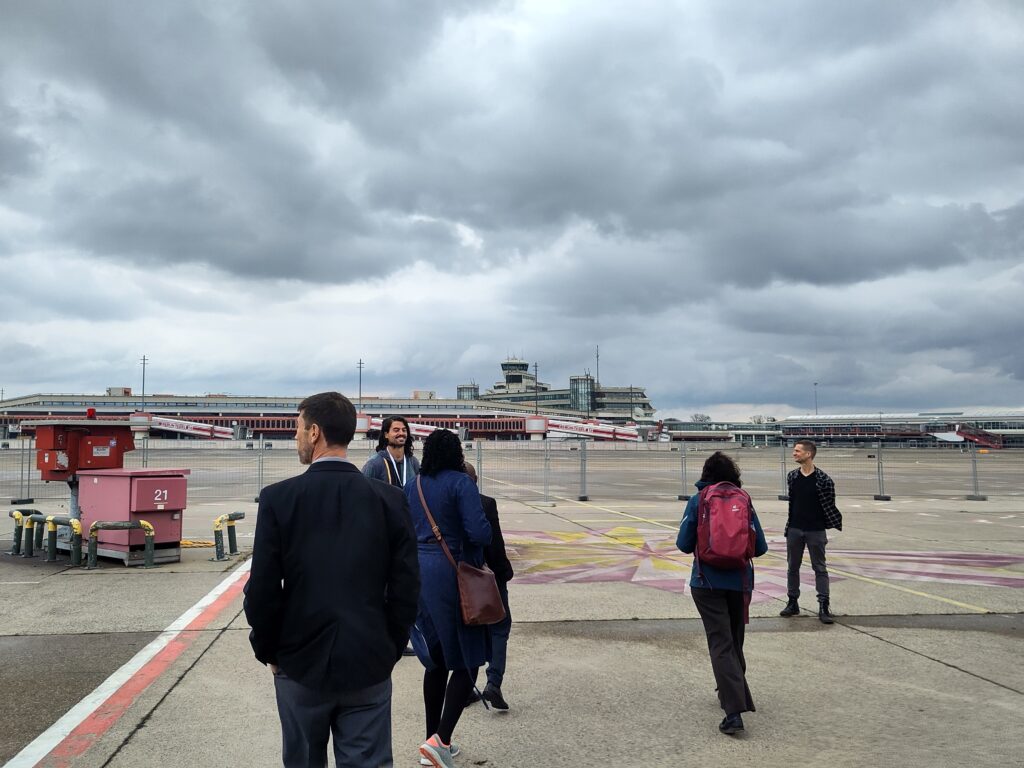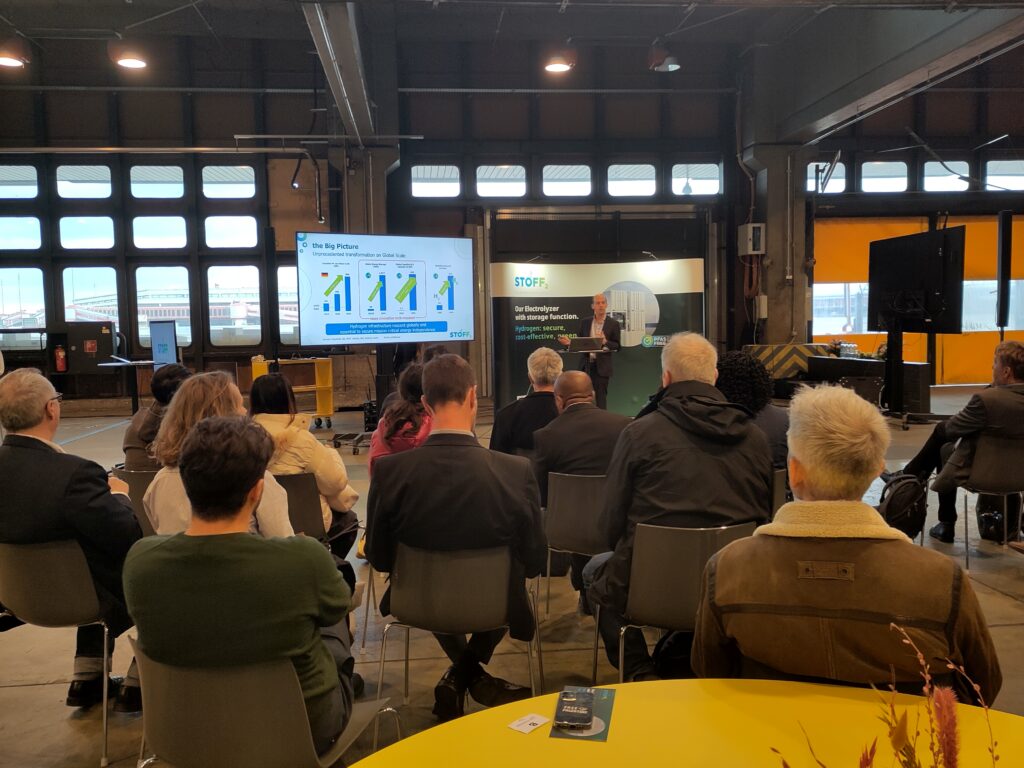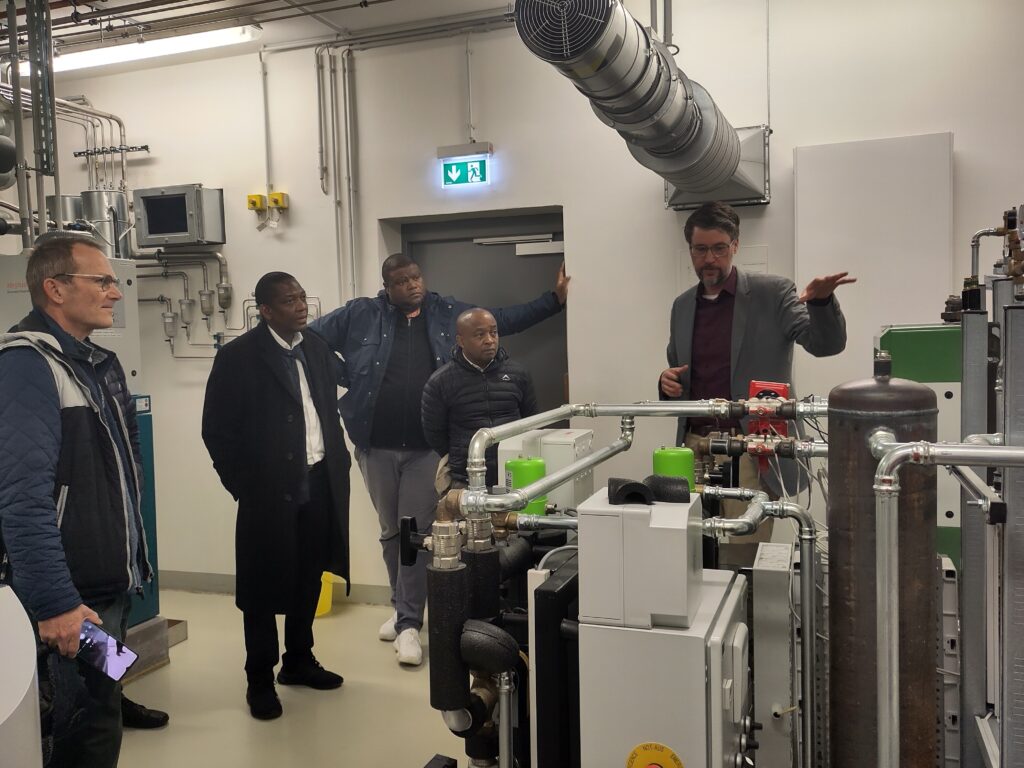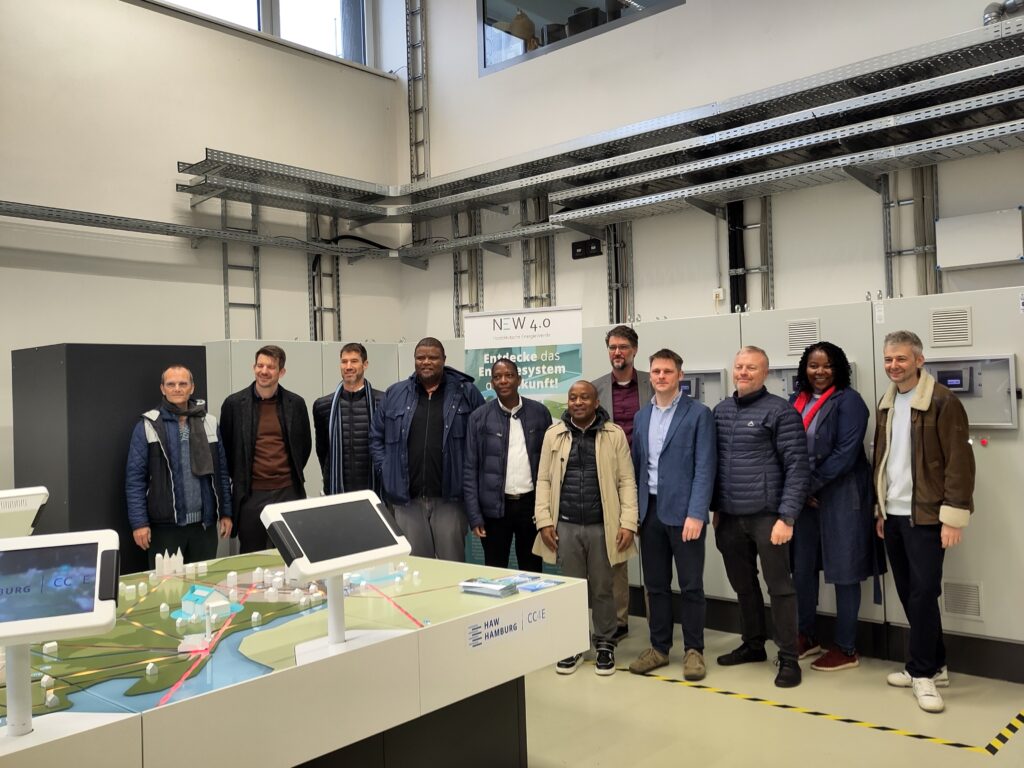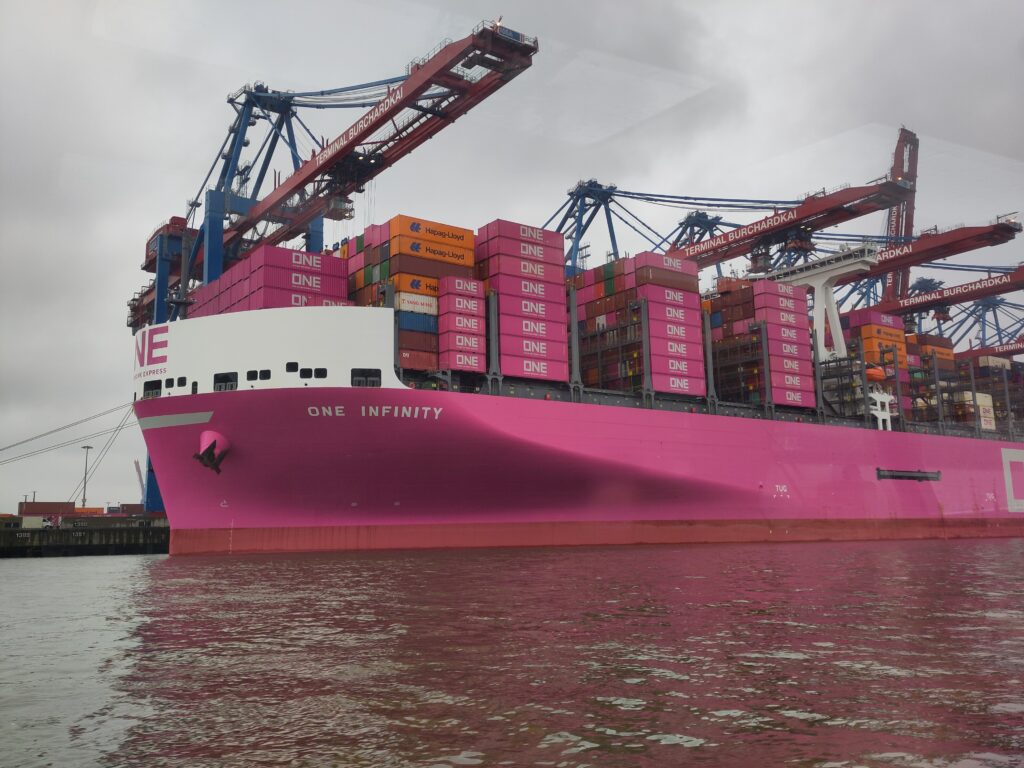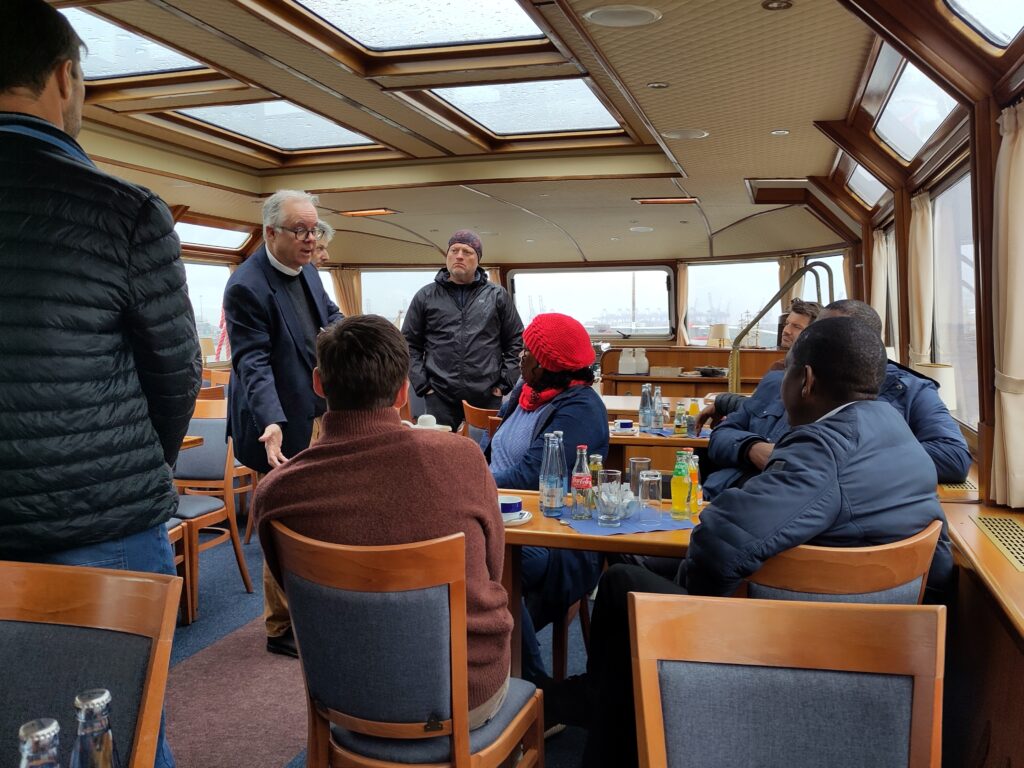South Africa will play a pivotal role in the global energy transition, given its renewable energy potential, resources of Platinum Group Metals and its expertise and experience in Fischer Tropsch technology. A close cooperation between Germany and South Africa on green hydrogen and Power-to-X has been initated in 2023 by German Federal Minister for Economic Affairs and Climate Action Robert Habeck and the South African Minister of Electricity, Kgosientsho Ramokgopa.
To deepen the collaboration, ten high-ranking officials from various South African government departments and economic agencies attended this year’s Berlin Energy Transition Dialogue (BETD) on March 19 and 20. During the week-long delegation trip, they engaged in side events, dialogues, and bilateral meetings, with a particular emphasis on topics such as critical raw materials, hydrogen clusters, green economy policy, and carbon sourcing. The trip culminated in visits to innovative green hydrogen companies and initiatives in Berlin and Hamburg.
Starting into the week with the South African-German Green Hydrogen Taskforce
On Monday, March 18, the South African-German Green Hydrogen Taskforce held its second meeting, which was hosted by the German Federal Ministry for Economic Affairs and Climate Action (BMWK) in Berlin. The first meeting was held during the last South Africa Green Hydrogen Summit (SAGHS) in Cape Town in October 2023. The Taskforce aims to accelerate the production and trade of green hydrogen and Power-to-X in both countries and to facilitate even closer cooperation.
The South African perspective on carbon sourcing for Power-to-X
On Monday afternoon, eight speakers and panellists discussed the technical possibilities as well as the different country perspectives on sustainable carbon from Morocco, South Africa, Uruguay, and Germany at the PtX Hub’s Official BETD 2024 Side Event. Carbon is a key ingredient in the production of Power-to-X products such as aviation and maritime fuels. The PtX Hub provided a platform for ministries and research experts on the subject to exchange views on the criteria and availability of sustainable carbon. Some of the takeaways were that carbon is such a critical issue that it can determine the location of a Power-to-X plant, and that forms and availability vary greatly from country to country. William Stafford, Principal Researcher at the Council for Scientific and Industrial Research (CSIR), shared the South African perspective.
The global energy transition at BETD 2024
The official Berlin Energy Transition Dialogue (BETD) took place on Tuesday and Wednesday, March 19 and 20. The German Federal Ministry for Economic Affairs and Climate Action (BMWK) and the German Federal Foreign Office hosted the international exchange on the global energy transition. Minister for Economic Affairs and Climate Action Robert Habeck and Federal Foreign Minister Annalena Baerbock opened the conference on Tuesday morning.
One of the delegates, Joanne Bate, Chief Operating Officer at the Industrial Development Corporation (IDC), shared South Africa’s focus on Power-to-X as an industrialisation opportunity, rather than an energy opportunity on a panel on “How to make industry policy green and sustainable”. At the heart of the Just Energy Transition in South Africa is the creation of sustainable livelihoods by focusing on workforce skills and local manufacturing. Solutions such as green mining, agrovoltaic and green ammonia for agriculture offer some of the greatest opportunities.
On Tuesday, the German Federal Ministry for Economic Cooperation and Development (BMZ), co-facilitated by the Africa Energy Forum (AEF) and the African-EU Energy Partnership (AEEP), hosted a high-level breakfast on advancing the Africa-Europe energy cooperation. The focus was on the implementation of commitments and the realisation of Africa’s energy transformation.
The final day of the BETD concluded with an insightful discussion on critical raw materials for the energy transition, with a focus on voices from Indonesia, Mexico, South Africa, and Bolivia, and a government-to-business exchange.
Concluding in Berlin with high-level dialogues
Following the official BETD 2024 programme, the subsequent meetings on Thursday, March 21 allowed for a deeper engagement with key partners for a successful energy transition in South Africa and Germany. A South African-German Business Roundtable, hosted by the South African Embassy in Germany, facilitated a closed group exchange on the most pressing issues for the emerging green hydrogen and Power-to-X markets, such as port infrastructure and financing schemes. The Roundtable was opened by His Excellency Ambassador Stone Sizani, South Africa’s Ambassador to the Federal Republic of Germany. Masopha Moshoeshoe, Green Hydrogen Lead for the South African Presidency, gave an overview of the developments in South Africa since the first South African-German Business Roundtable on green hydrogen and Power-to-X a year ago.
The ensuing panel “Catalysts of Change: Clean Hydrogen Clusters in Developing Economies”, organised by the United Nations Industrial Development Organisation (UNIDO) shed light on the plans for hydrogen clusters in South Africa, focusing on the individual perspectives of the different provinces.
For the last dialogue of the day, the Green Hydrogen Business Alliance, on behalf of the Federal Ministry for Economic Cooperation and Development (BMZ) and the Federal Ministry for Economic Affairs and Climate Action (BMWK), in cooperation with Germany Trade and Invest (GTAI) invited to a collaborative and constructive dialogue between private sector companies and the German government. Director General Dirk Meyer (BMZ) and Director General Dr. Dominik Schnichels (BMWK) informed the private sector on the latest developments in green hydrogen policy. A focus of the dialogue was to exchange on the different perspectives and the needs of the private sector in implementing green hydrogen projects in partner countries.
In practice: hydrogen initatives in Berlin and Hamburg
The delegation’s visit concluded with site visits to innovative green hydrogen and Power-to-X private sector and research initiatives in Berlin and Hamburg. At the disused Berlin-Tegel airport, the start-ups STOFF2 and HH2E presented their novel approaches to using curtailed (and therefore cheap) renewable electricity to produce hydrogen for storage and heat in Germany. The location was also inspiring: the airport is being transformed into the Urban Tech Republic, a start-up hub for sustainable technologies with the aim of creating a circular economy.
On Friday, the delegates visited the Competence Center for Renewable Energy and Energy Efficiency CC4E in Hamburg-Bergedorf. The focus was on the North German Living Lab (NRL). The NRL is an innovative collaborative project that aims to test new ways of achieving climate neutrality. With a focus on defossilisation of high emissions industrial sectors, the NRL involves more than 50 partners from business, science and politics.
A boat trip through Hamburg’s industrial port rounded off the delegation’s visit. Ingo Fehrs, Lead New Energy and Hydrogen at the Hamburg Port Authority explained the port’s plans to become a truly sustainable port. Heike Tipmonta from HY-5 presented the concept of the initative, which aims to promote Northern Germany as a key investment location for green industry and energy.
The week-long trip demonstrated the momentum of South African-German cooperation, technology research and adoption for green hydrogen and Power-to-X to enable the transition to sustainable industries in both countries.
